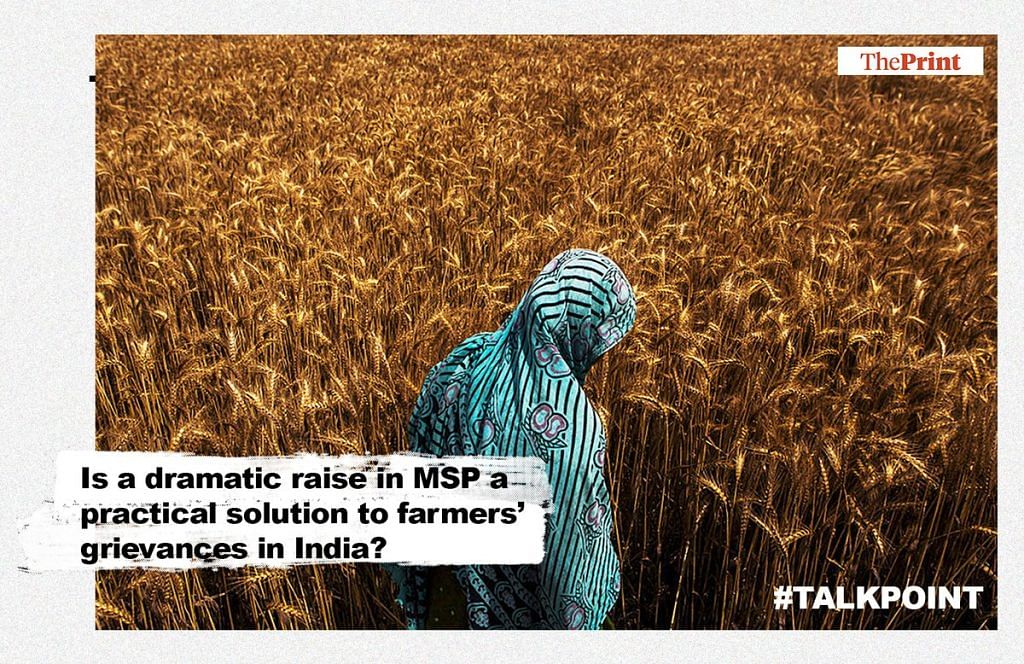Thousands of farmers marched in Delhi on Monday, demanding a one-time full loan waiver, fair crop prices and the fulfilment of the Centre’s promises to them. PM Narendra Modi had promised a minimum of 50 per cent profits over the cost of production during the 2014 election, based on the recommendation of the National Commission of Farmers chaired by Prof. M.S. Swaminathan. In 2015, the Centre dropped the proposal stating it may lead to market distortion.
ThePrint asks: Is the Swaminathan committee recommendation on MSP a practical solution to farmers’ grievances in India?
This could be the first step in the right direction. It cannot – and no single policy measure can – solve all the farmers’ grievances, as these are rooted in the economic and ecological crisis of Indian agriculture. But if executed sensibly, and combined with other policy measures, this suggestion of the Swaminathan Commission can be the lifeline the Indian farmers need so desperately.
Why do the farmers need this? Because, as any farmer would tell you “kheti ghaate ka sauda hai” (farming is a loss making proposition). The Indian farmers do not get a fair price for their crops as compared to their cost of production or their household needs or the retail prices paid by the consumer. This is a national scandal.
That is why the Swaminathan Commission proposed a fair deal: the government must ensure at least 50% margin for the farmers over their total cost of production by offering this as Minimum Support Price. The cost in question is called C2, a national weighted average of cash outflow + family labour cost + other imputed costs of that crop across the country, as measured by Commission on Agricultural Costs and Prices.
Here are other sharp perspectives on Swaminathan committee recommendation on MSP :
P. Chengal Reddy: Chief Advisor, Consortium of Indian Farmers Association
Vijay Sardana: Commodity Markets & Agribusiness Strategist
Siraj Hussain: Visiting Senior Fellow, ICRIER.
Aruna Urs: Farmer-in-residence.
How can the government ensure this? By revising the MSP as per the recommendations of the Swaminathan Commission report and by making it a statutory right. The government need not, and simply cannot, purchase all the farm produce. It can expand the current procurement to some extent, especially for dal and coarse grains. For the rest of the crops, the government will have to resort to a combination of strategic market intervention and deficit payment whenever the farmer is forced to sell her crop lower than the MSP.
Would it lead to a rise in food prices? Yes, and the way to save consumers is to not shift the burden of subsidies to the farmers, but to check cost of production, reduce the margin of the middlemen and to use the public distribution system to provide cheap food to the poor. Import duties will have to be used more deftly to save Indian farm products from invasion by cheap imports.
Can the country afford it? Surely, if we can afford Seventh Pay Commission to government employees, if we can recapitalise banks and afford a bullet train, why not MSP for farmers? It’s about the government’s priorities. I call it political will.
The author is National President of the newly formed political party Swaraj India and is among the leaders of the All India Kisan Sangharsh Coordination Committee.
